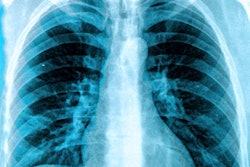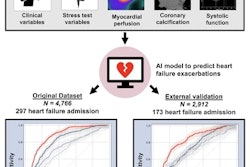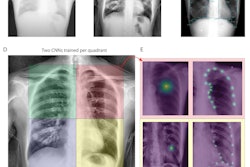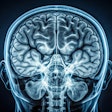Dartmouth's Center for Precision Health and Artificial Intelligence held its first symposium April 3 featuring leaders from radiology, pathology, and more.
A keynote delivered by Curtis Langlotz, MD, PhD, professor of radiology, medicine, and biomedical data science at Stanford University, summarized that AI algorithms can assist radiologists at every step of the imaging process.
"There are aids that can provide inputs to help decide which imaging tests to order; programs to enhance image quality, making it possible to reduce radiation doses used in imaging; tools that instantaneously detect imaging problems to ensure that faulty images are retaken right away; applications that conduct basic triage to identify cases that may need immediate attention; and virtual assistants that help with reporting observations and following up with patients," Dartmouth shared in a blog post.
Langlotz's laboratory investigates the use of deep neural networks and other machine-learning technologies to detect disease and eliminate diagnostic errors through analysis of medical images and clinical notes. He also serves as associate director of Stanford’s Institute for Human-Centered Artificial Intelligence and as director of the Center for Artificial Intelligence in Medicine and Imaging.
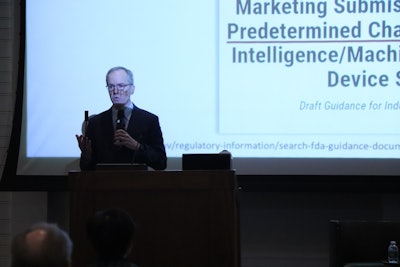 Curtis Langlotz, MD, PhD, professor of radiology, medicine, and biomedical data science at Stanford University, was among the keynote speakers at the Dartmouth event April 3. Photo courtesy of Dartmouth.
Curtis Langlotz, MD, PhD, professor of radiology, medicine, and biomedical data science at Stanford University, was among the keynote speakers at the Dartmouth event April 3. Photo courtesy of Dartmouth.
However, the experts warned that providers should carefully review healthcare decisions that are made with the aid of technology and educate themselves on how to use the tools safely and responsibly.
Langlotz added that educators and researchers must ensure that medical students are armed with an understanding of how AI models work, build smaller, more focused models that are trained and tailored for medical applications, and go the extra mile to validate models for accuracy and reliability.
What’s more, it is important to think about “who’s in the room to decide what problem is being solved and make sure that the solution we have is fair,” Langlotz said.
Radiologist Jessica Sin, MD, added, "There is a bias to go along with what our technology tells us to do, but in health care the stakes are high."
The event called attention to several research efforts underway at Dartmouth, such as the development of AI tools to help diagnose colorectal cancer and identify novel biomarkers for breast cancer.




